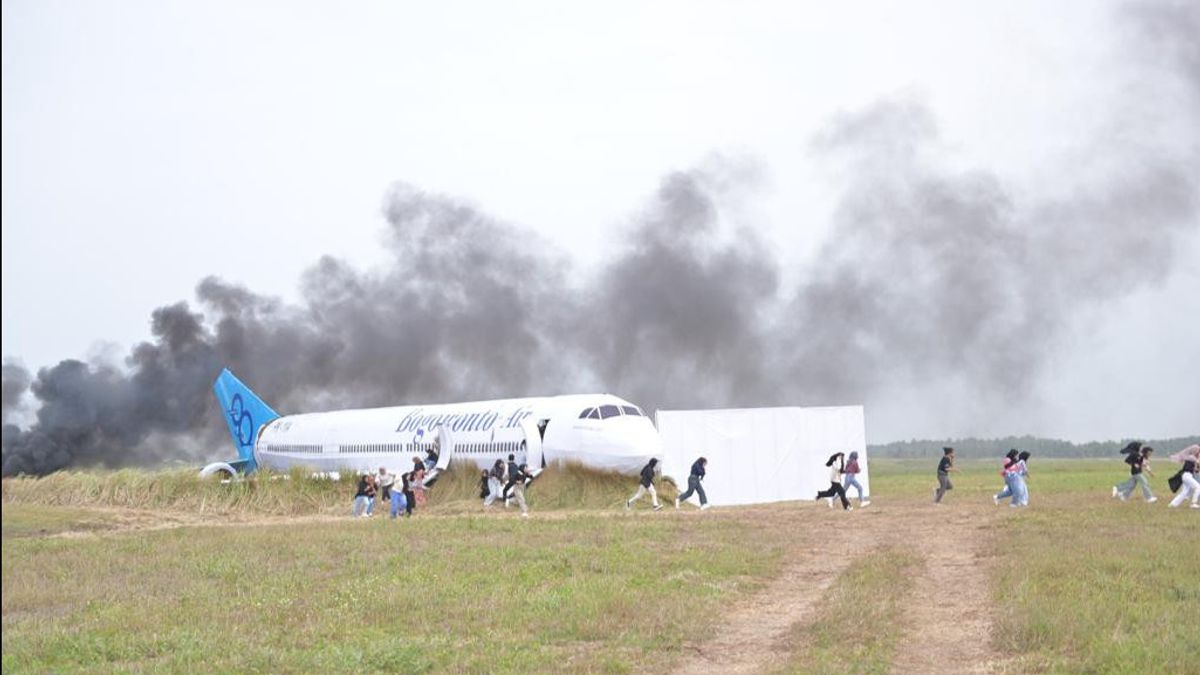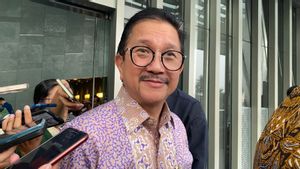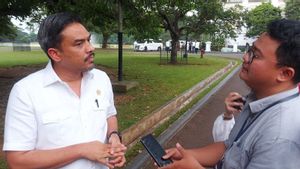PT Angkasa Pura I (AP1) held the 110th Dirgantara Raharja Emergency Management Exercise (PKD) at Yogyakarta International Airport, Kulonprogo Regency, Yogyakarta Special Region, which aims to test the capabilities and alertness of all personnel.
Director of Operations of PT Angkasa Pura I Indah Preastuty said this exercise was to test the ability and alertness of all personnel, as well as to test operational implementation standards (SOPs) when an emergency occurs at the airport.
"In the airport business, the safety and security aspects of aviation are the main priorities that need extra attention because they are related to the safety of human life," he said in a press release, Friday, August 4.
He said that this full-scale PKD exercise was the first time it had been held at Yogyakarta International Airport (YIA) since it was fully operational in March 2020.
PT Angkasa Pura I is committed to continuing to hone and improve the quality and ability of personnel to deal with any risks, threats, safety and flight security disturbances, as well as to be able to provide assistance and evacuation in a state of emergency.
PKD exercises at Yogyakarta International Airport include three types of exercises, namely simulations of aircraft accidents, simulations of handling bombs and threat of flight security (security exercise), as well as simulations of natural disaster response (airport disaster exercise).
Aircraft accident exercise tested the capabilities of personnel and SOP documents in effect when an aircraft belonging to the Bogowono Air airline type Airbus A330-200 with Singapore routes to Yogyakarta carrying 238 passengers and 12 cabin crew crashed shortly before landing at Yogyakarta International Airport.
The plane experienced very rapid changes in direction and wind speed. The combination of turbulence and crosswinds resulted in the aircraft's performance being reduced and did not have time to carry out the recovery process, so the aircraft was pushed very strongly to the north of the runway.
In security exercise, two types of security disturbance situations are simulated at the airport, namely handling the threat of bombs at the airport, and handling the mass demonstration situation in the airport area.
Meanwhile, in the airport disaster exercise, simulated handling and mitigating natural disasters in the form of earthquakes with an earthquake magnitude of 7.8.
The earthquake with a depth of 47 km centered in the south of Cilacap was declared to have the potential to cause a tsunami.
This earthquake resulted in a number of damage to the airport terminal building, resulting in a number of airport service users being injured.
In the PKD exercise, the function of coordination, communication, and command between units and airport community agencies will be tested.
In addition to testing personnel, PKD exercises are also an effort to test Airport Emergency Plan (AEP) Emergency Management Plan Documents, Airport Security Program (ASP) Documents, Disaster Mitigation Plan Documents at Airport or Airport Disaster Management Plan (ADMP), and other Standard Operating Procedure (SOP) that apply at airports.
In addition to involving internal personnel from AP1, the 110th PKD exercise at Yogyakarta International Airport also involved personnel from a number of agencies, such as Perum LPPNPI (AirNav Indonesia) Yogyakarta Branch, TNI, Police, Immigration Office, Port Health Office, Quarantine Office, hospital management around airports, and airlines.
"In total, this PKD exercise involves at least 638 personnel from the agency," said Indah.
Indah said, simulations of each exercise have been designed in such a way that they are close to real conditions.
This is aimed at being able to test the capabilities and alertness of personnel, as well as to test the applicable documents and procedures.
"Nevertheless, the entire series of PKD training activities did not interfere with the flight operations and services of airport service users at Yogyakarta International Airport," he added.
The English, Chinese, Japanese, Arabic, and French versions are automatically generated by the AI. So there may still be inaccuracies in translating, please always see Indonesian as our main language. (system supported by DigitalSiber.id)













